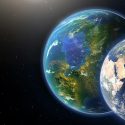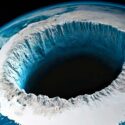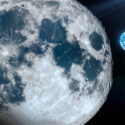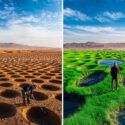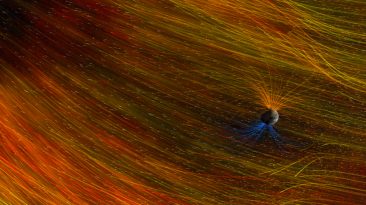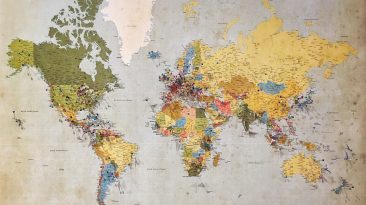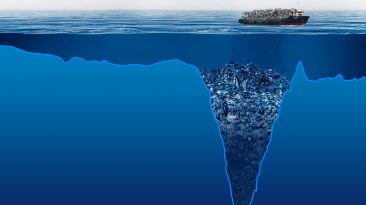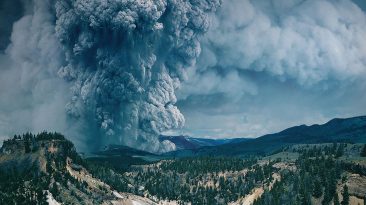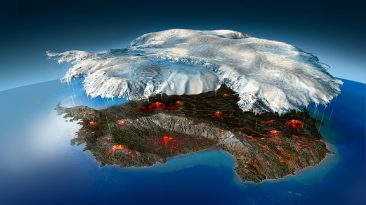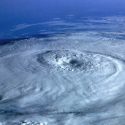Imagine Earth with an even 50/50 split between continents and oceans. Our planet covered half by land half by water. How would this change the planet as you know it? What new kinds of vacations could this make possible for you? And what does the color of your pee have to do with this?
When it comes to making life possible on a planet, water is an absolute must-have. That’s why we look for alien life on worlds where liquid water could exist. When it comes to our own planet, 71% of its surface is covered by water. Most of that is in our five oceans. Together, they form one global ocean.
Now, if you replaced nearly a quarter of our ocean water with land, how soon would Earth turn into just another life-less rock in space? Thanks to global warming, Earth’s sea levels are currently rising. But if you wanted to balance the planet’s land-to-water ratio, you’d see the sea levels absolutely plummet. And not just a few meters, but around 3 km (1.9 mi).
Earth would look very different. The regions around both the North and South poles would be completely dried out. And every continent on the planet would expand. And not just a little, either. All this newly emerged territory around the world would be roughly equal to the current surface areas of Asia, Europe, Africa and North America combined.
That would be an enormous amount of unused space. Everything extending off the old coasts would be relatively flat. But some of the areas that used to be deep ocean would reveal vast corridors and steep crevasses. As you explored this new land, you’d discover that the one global ocean would be no more. All of the oceans would be separated from each other. And all of the continents would be one connected landmass.
And this would be good news for evolution. Early humans didn’t have any ships or planes. We spread across the globe simply by walking. Venturing away from Africa some 70,000 to 100,000 years ago, we found our way to Europe and Asia. Eventually, we were able to cross a land bridge connecting Asia to the Americas, possibly as far back as 20,000 years ago.
With the 50/50 split in place, you’d now be able to cover even more ground. Finally, you could take that around-the-world trip you’ve always dreamed of. All on your own two feet. But this shifting balance of water and land wouldn’t be all fun and games. With so much less water covering the surface, our ocean currents would be disrupted. And this would seriously destabilize the climate.
Currents distribute the heat that is absorbed by the oceans around the globe. Disrupting them would mean even colder temperatures around the North and South poles. While the already hot equatorial regions would get even hotter. Climate change would speed up too. All because oceans wouldn’t be able to absorb so much carbon dioxide from the air.
That excess carbon dioxide would blanket the planet and raise temperatures. Rain levels would also drop off. And this would create dangerous droughts, as well as new deserts in many inland areas. So while there may be an abundance of new land available, large stretches of Earth could become uninhabitable.
Plants, animals and humans would all need to adapt to being less dependent on water. Or at least start using it more efficiently. Water scarcity could result in animals evolving to be smaller, with more making the jump to a strictly carnivorous diet. And sadly, the abundance of life that today’s oceans support would struggle to survive.
And maybe the most surprising consequence that you’d need to get used to is that your pee would likely change forever. Usually, urine is made up of more than 90% water. But with less water in your daily life, yours would become much darker and start to smell like ammonia.
Sources
- “How Much Water Is There On Earth? | U.S. Geological Survey”. 2018. usgs.gov.
- “How Many Oceans Are There?”. 2022. oceanservice.noaa.gov.
- “NASA – Water: The Molecule Of Life An Interview With Philip Ball “. 2022. nasa.gov.
- “Without Oceans, Earth-Like Life Probably Can’T Evolve On Other Planets”. Rachel Nuwer. 2014. smithsonianmag.com.
- “How Does The Ocean Affect Climate And Weather On Land? : Ocean Exploration Facts: NOAA Ocean Exploration “. 2022. oceanexplorer.noaa.gov.



